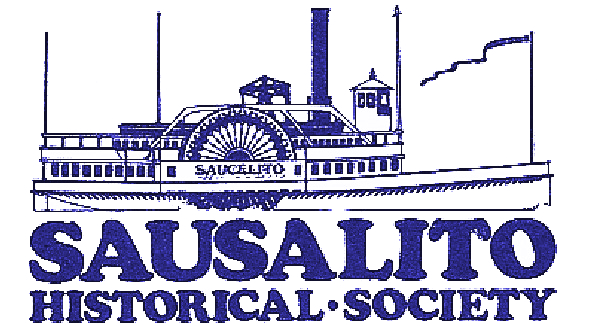By Larry Clinton, Sausalito Historical Society
PHOTO FROM REBELS WITH A CAUSE
Huey Johnson enjoying Marin open space
Huey Johnson, an early environmentalist who challenged wealthy builders and the government during a grassroots campaign to protect the Marin Headlands from development and who helped create the Golden Gate National Recreation Area, died recently at age 87.
As western director of The Nature Conservancy, Mr. Johnson was involved in many environmental negotiations, but his landmark case was Marincello, the planned community which would have crammed apartment towers, as well as hundreds of homes and townhouses into 2,000 acres of the Marin Headlands in the 1960s. How Mr. Johnson and a team of volunteers fought the project is depicted in the highly praised documentary, Rebels With a Cause.
In a 2016 oral history with for the Mill Valley Historical Society, Mr. Johnson told how he convinced the Gulf Oil Corporation to abandon the project and to sell the land to the Nature Conservancy which then transferred it to the newly formed Golden Gate National Recreation Area. Here's the story, in these lightly edited excerpts from Mr. Johnson’s conversation with Debra Schwartz:
Marincello had been part of a former ranch centered in an Army base on the coast. It was owned by an oil company [Gulf], and the oil company leased it to a big New York developer, who was really big time. And he came out with a vision, design and a miniature of this whole vast valley including Venice-like canals with boats and thirty skyscrapers.
In the end it was so preposterous, that I didn’t ever take it that seriously. But the developer was very serious. A handful of us decided it wouldn’t make a lot of sense and started opposing him. And that may have been a turning point for a lot of environmental interest in Marin. A lot of people thought about that and got angry and got involved.
The Board of Supervisors had turned it down, not wanting it on the ballot. We wanted to try to get it in the ballot, to take advantage of educating the public. And these two elderly sisters blocked traffic on
101 with petitions. [laughs] One had a can for contributions, and the other would have people sign up. So a sister would go on each side of your car, have you sign a petition, and ask for a contribution. And that was just wonderful.
That was written up, of course. And that started to create the drum roll of interest and support and pressure on the supervisors, et cetera. And in the end, I kept going back to the headquarters of the oil company, it was in Pittsburgh. I think I went back half a dozen times at least. I’d be ushered into a meeting and there’d be a dozen people there and the vice-president of real estate and he’d say, “Well, you’re known as opposing our project and we want to negotiate.” And so he’d say, “We’ve cut back some.” They’d unroll the plan, which before had had every hilltop covered, they’d cut back a little bit — each trip they’d cut back a little bit. And each time I said, “I’m telling you, the people of Marin are not going to allow this thing to be built and you’d save a lot of money by just forgetting it.” And this guy was tough, big fists, and he’d swear at me. And all his minions were taking notes and getting ready to do the next draft.
And the last time I came in, he wasn’t there in the headquarters. A new face was there and he said, “Here’s our offer.” And I said, “I repeat, I’m telling you no.” And he said, “Never mind, everybody leave the room,” in a loud voice. And they all got up and left. “Not you, Johnson.” And I sat again and there I was alone, facing him, and he said, “All right, you bugger, you win. What do I do?” And I couldn’t think. It didn’t ever occur to me when I went, I guess. And I sat there blank with “win” in my head spinning around. I didn’t have a legal document, but I said, “Well, you’ve got to sign an option.” And he said, “Where is it?” So I tore out a notebook paper and I provided an option and he signed it and I said, “I’ve got to give you a down payment.” And we negotiated the terms. It was going to be $12 million and whatever. And he said, “How much are you going to put down?” I said, “$100,” ‘cause that’s all I had in my checking account. And he swore some more.
I said, “It’s symbolic. What you’re getting from me is I’m going to go to Congress and I’m going to get Congress to guarantee you’re going to get a tax credit of $6 million, and $6 million in cash. That will be the deal. And you can’t do it because nobody would trust you.” It was an oil company. And he said, “All right.”
I wrote the check for $100, he signed the document, and I never went back.
If you’d like to know more about the colorful Huey Johnson, you can view Rebels With a Cause on DVD or online. You can also listen to his oral history, or read the transcript, at: https://millvalley.pastperfectonline.com/archive/6A2EA579-089E-4B20-90F3-752281227206.

